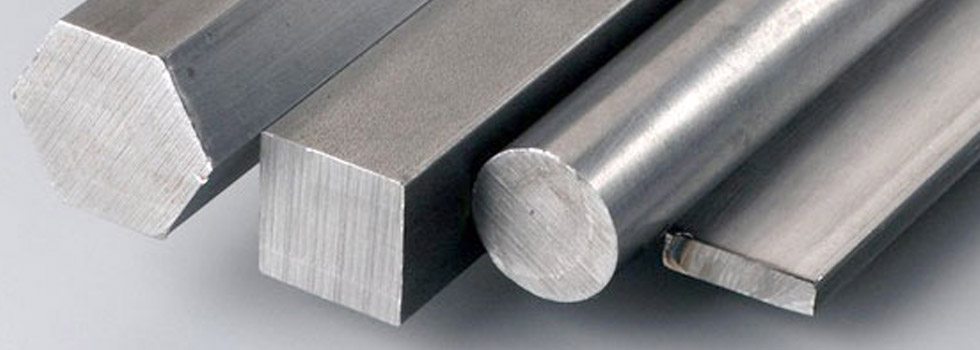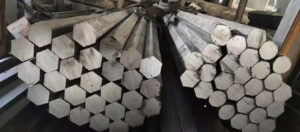Round Bar vs. Square Bar: Understanding the Differences and Applications
In the world of metal fabrication, the choice of materials and their specific forms plays a crucial role in determining the success of a project. Two common forms of metal bars that are widely used in various applications are the round bar and the square bar. Although they might seem quite similar at first glance, these two shapes have distinct characteristics and are suited to different purposes. In this blog, we will explore the key differences between round bars and square bars, as well as their respective applications.
Round Bar: Versatility in Shape
The round bar, as its name suggests, has a cylindrical shape with a circular cross-section. Here are some of the key characteristics and advantages of round bars:
1. Uniform Stress Distribution: Due to its circular shape, round bars distribute stress evenly across their surfaces. This makes them ideal for applications where load-bearing and structural integrity are important.
2. Ease of Machining: Round bars are relatively easy to machine, making them suitable for a wide range of fabrication processes, including turning, drilling, and milling.
3. Aesthetic Appeal: Round bars are often used in applications where aesthetics are a concern, such as in architectural and decorative elements.
4. Enhanced Corrosion Resistance: The absence of sharp corners and edges reduces the likelihood of stress concentrations, which can lead to corrosion. This makes round bars a good choice for outdoor or corrosive environments.
Square Bar: Angular Precision
Square bars, on the other hand, have a four-sided shape with equal sides and right angles. They offer distinct advantages:
1. Angular Precision: Square bars are ideal for applications where angular precision is critical. The right angles and flat sides facilitate accurate measurements and connections.
2. Torsional Rigidity: Square bars offer higher torsional rigidity compared to round bars. This property makes them suitable for applications where torque or twisting forces are involved.
3. Space Efficiency: In applications where space is limited, square bars are preferred due to their efficient use of space. They can be closely packed, reducing the need for extra clearance.
4. Simplicity in Design: Square bars are easier to work with in certain designs and structures, such as frames and brackets, where square or rectangular sections are more practical.
Applications:
Now, let’s explore some of the common applications where each type of bar excels:
Round Bar Applications:
1. Shafts: Round bars are commonly used as axles, drive shafts, and other rotating components due to their even stress distribution and ease of machining.
2. Fasteners: Round bars are used for manufacturing various fasteners, including bolts, studs, and pins.
3. Aerospace: In aerospace engineering, round bars are used for critical components like landing gear and engine shafts.
4. Construction: Round bars are used in construction for reinforcing concrete, creating columns, and as structural supports in buildings.
Square Bar Applications:
1. Framework: Square bars are frequently used in constructing frames, brackets, and supports due to their angular precision and space-efficient design.
2. Machinery: Square bars are used for parts that require torsional rigidity, such as gears, pulleys, and couplings.
3. Tooling: Square bars can be employed in the creation of precision tools and dies where accurate measurements are essential.
4. Manufacturing: Manufacturers use square bars for producing a wide range of products, including automotive components, machine parts, and agricultural equipment.


Conclusion
While round bars and square bars might appear to be simple shapes, their differences in form and properties make them suitable for a wide variety of applications. Understanding these distinctions is crucial for selecting the right material for your project. Round bars offer versatility, even stress distribution, and ease of machining, making them ideal for many applications. Square bars, with their angular precision, torsional rigidity, and space efficiency, are preferred in situations where these attributes are essential. The choice between round and square bars ultimately depends on the specific requirements of the project and the desired performance characteristics.
Bhansali Metalloys Inc is one of the leading Manufacturer, Exporters, and Suppliers of High Quality Round Bar and Square Bar all over in India. We are Manufacturer, Supplier and Dealer of various types of Fasteners such as Bolts, Nuts, Screws, Washers, Threaded Rods and many more. We are Round Bar and Square Bar Manufacturer in India. These Bars are available in different grades and materials. We are Round Bar and Square Bar Manufacturer, Supplier, Dealer, and Exporter in India. We are Round Bar and Square Bar Supplier in India. Contact Us +919152160158 or email to info@bhansalimetalloysinc.com for Round Bar and Square Bar price list.
For our full list of products that we offer check out our website here. Be sure to join the conversation in our Facebook, Instagram, Twitter, LinkedIn Group.
Each Stainless Steel Round Bar and Square Bar is otherwise designed based on the characteristics of the applying and additionally the pressure. Consequently, different industries use different Round Bar and Square Bar. We also produce customized Round Bar and Square Bar Products at our factory as per our client’s requirements. For any types of Round Bar and Square Bar Price List Call on +91 9152160158 or drop an Email to info@bhansalimetalloysinc.com | exportbmi32@gmail.com
We Export Across the Globe
Exports in Asia Afghanistan, Armenia, Azerbaijan, Bangladesh, Bhutan, Brunei Darussalam, Cambodia, China, Georgia, Hong Kong, India, Indonesia, Japan, Kazakhstan, South Korea, Kyrgyzstan, Laos, Macao, Malaysia, Maldives, Mongolia, Myanmar (ex-Burma), Nepal, Pakistan, Phillipines, Singapore, Sri Lanka (ex-Ceilan), Taiwan, Tajikistan, Thailand, Timor Leste (West), Turkmenistan, Uzbekistan, Vietnam.
Export to Africa Burundi, Comoros, Djibouti, Eritrea, Ethiopia, Kenya, Madagascar, Malawi, Mauritius, Mayotte, Mozambique, Reunion, Rwanda, Seychelles, Somalia, Tanzania, United Republic of Uganda, Zambia, Zimbabwe, Angola, Cameroon, Central African Republic, Chad, Congo (Brazzaville), Congo, Democratic Republic of the Equatorial Guinea, Gabon, Sao Tome and Principe, Algeria, Egypt, Libyan Arab Jamahiriya, Morroco, South Sudan, Sudan, Tunisia, Western Sahara, Botswana, Lesotho, Namibia, South Africa, Swaziland, Benin, Burkina Faso, Cape Verde, Cote d’Ivoire (Ivory Coast), Gambia, Ghana, Guinea, Guinea-Bissau, Liberia, Mali, Mauritania, Niger, Nigeria, Saint Helena, Senegal, Sierra Leone, Togo.
Export to America Anguilla, Antigua and Barbuda, Aruba, Bahamas, Barbados, Bonaire, Saint Eustatius and Saba, British Virgin Islands, Cayman Islands, Cuba, Curaçao, Dominica, Dominican Republic, Grenada, Guadeloupe, Haiti, Jamaica, Martinique, Monserrat, Puerto Rico, Saint-Barthélemy, St. Kitts and Nevis, Saint Lucia, Saint Martin, Saint Vincent and the Grenadines, Sint Maarten, Trinidad and Tobago, Turks and Caicos Islands, Virgin Islands (US), Belize, Costa Rica, El Salvador, Guatemala, Honduras, Mexico, Nicaragua, Panama, Argentina, Bolivia, Brazil, Chile, Colombia, Ecuador, Falkland Islands (Malvinas), French Guiana, Guyana, Paraguay, Peru, Suriname, Uruguay, Venezuela, Bermuda, Canada, Greenland, Saint Pierre and Miquelon, United States.
Export to the Middle East Bahrain, Iraq, Iran, Israel, Jordan, Kuwait, Lebanon, Oman, Palestine, Qatar, Saudi Arabia, Syria, United Arab Emirates, Yemen.




